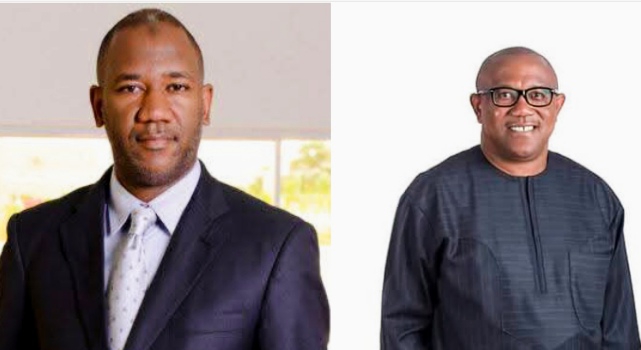The Labour Party's internal crisis reached a boiling point as Yusuf Datti Baba-Ahmed, former running mate to Peter Obi in the 2023 presidential election, emerged as the party’s new presidential candidate under the embattled Julius Abure-led faction.
In a move many have condemned as a shocking betrayal, Datti joined other party leaders at a National Executive Committee (NEC) meeting held in Abuja, where the suspension of Peter Obi topped the agenda.
The meeting, convened at the party’s national headquarters, was attended by Abure, National Secretary Alhaji Umar Farouk, and National Publicity Secretary Obiora Ifoh, among others.
Just days prior, Labour Party’s Publicity Secretary, Abayomi Arabambi, openly declared on Channels TV:
“We are conveying a NEC meeting where he (Peter Obi) will be suspended. Obi will be expelled from our party.”
What stunned political observers and supporters alike was Datti’s active role in the meeting that finalized Obi’s suspension—despite their shared history as presidential running mates.
The NEC meeting was also used to reaffirm the faction’s support for Julius Abure, whose position as National Chairman had been nullified by a Supreme Court judgment on April 4, 2025. Despite the ruling, Abure maintains control over a section of the party and used the meeting to assert his influence.
In contrast, a rival NEC meeting on July 18, 2025, had already installed Senator Nenadi E. Usman as Interim National Chairman and Senator Darlington Nwokocha as Interim Secretary, signaling a widening split within the party.
Datti Baba-Ahmed’s emergence as a presidential candidate under Abure’s faction has deepened the division and raised questions about loyalty, legitimacy, and the future of the Labour Party.
As the 2027 general elections approach, the party’s inability to resolve its internal wrangling could cost it dearly at the polls.
Analysts warned that unless urgent reconciliation is achieved, the Labour Party may face political extinction.













